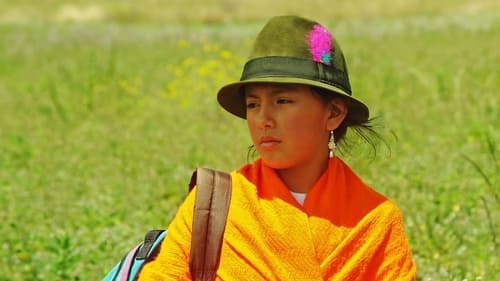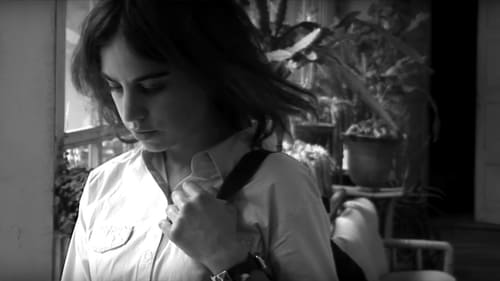Gabriela Calvache
出生 : , Ambato, Ecuador
略歴
Calvache was born in a small city in the Ecuadorean Andes. Her short film “On Hold" premiered at International Film Festival Rotterdam (2011) and earned awards in Japan, France, Chile, Ecuador, Argentina and Brazil. It was included in the Native section of the Berlin International Film Festival (2015).

Director
An exquisite corpse that aims to configure a plural vision of the experiences of isolation during the first months of the pandemic. The film consists of 6 fragments directed by 6 different Latin American directors.

Executive Producer
A beautiful woman turns to prostitution. She must surrender her income to the leader of a human trafficking ring, but her daughter’s illness and a drug addiction prevent her from delivering her usual share. An unexpected event will give her the opportunity to stop obeying and take justice into her own hands.

Producer
A beautiful woman turns to prostitution. She must surrender her income to the leader of a human trafficking ring, but her daughter’s illness and a drug addiction prevent her from delivering her usual share. An unexpected event will give her the opportunity to stop obeying and take justice into her own hands.

Screenplay
A beautiful woman turns to prostitution. She must surrender her income to the leader of a human trafficking ring, but her daughter’s illness and a drug addiction prevent her from delivering her usual share. An unexpected event will give her the opportunity to stop obeying and take justice into her own hands.

Director
A beautiful woman turns to prostitution. She must surrender her income to the leader of a human trafficking ring, but her daughter’s illness and a drug addiction prevent her from delivering her usual share. An unexpected event will give her the opportunity to stop obeying and take justice into her own hands.

Producer
The reality of four rural women in the Metropolitan District of Quito. Despite their pain and difficulties, they have managed to forge a life that in maturity unfolds all the beauty of wisdom.

Producer
Asier and I grew up in the Basque Country. But one day he disappeared, later I found out he had joined ETA.

Producer
Between the city and the countryside, the subtle and modern forms of slavery unfold. A girl waits for the pick-up truck that will transport her to the city. Once there, amidst a never-ending row of walls and fences, she peeks into the entrance to a school. Lined up and in uniform, those girls are not the ones Carmen will join.

Director
Between the city and the countryside, the subtle and modern forms of slavery unfold. A girl waits for the pick-up truck that will transport her to the city. Once there, amidst a never-ending row of walls and fences, she peeks into the entrance to a school. Lined up and in uniform, those girls are not the ones Carmen will join.

Cinematography
Every city has its secrets, but it is probably inside houses, behind their silent walls, where they are most intense and human. The Alabado House was built in 1671 as part of Quito’s colonial Old City, surviving centuries of earthquakes, poverty and decay. Over the past five years, dozens of manual laborers have been working to restore it. But its miraculous beauty conceals a long and tragic history. For it was the oppressed indigenous masses who built the Old City, the largest in Latin America.

Producer
Every city has its secrets, but it is probably inside houses, behind their silent walls, where they are most intense and human. The Alabado House was built in 1671 as part of Quito’s colonial Old City, surviving centuries of earthquakes, poverty and decay. Over the past five years, dozens of manual laborers have been working to restore it. But its miraculous beauty conceals a long and tragic history. For it was the oppressed indigenous masses who built the Old City, the largest in Latin America.

Writer
Every city has its secrets, but it is probably inside houses, behind their silent walls, where they are most intense and human. The Alabado House was built in 1671 as part of Quito’s colonial Old City, surviving centuries of earthquakes, poverty and decay. Over the past five years, dozens of manual laborers have been working to restore it. But its miraculous beauty conceals a long and tragic history. For it was the oppressed indigenous masses who built the Old City, the largest in Latin America.

Director
Every city has its secrets, but it is probably inside houses, behind their silent walls, where they are most intense and human. The Alabado House was built in 1671 as part of Quito’s colonial Old City, surviving centuries of earthquakes, poverty and decay. Over the past five years, dozens of manual laborers have been working to restore it. But its miraculous beauty conceals a long and tragic history. For it was the oppressed indigenous masses who built the Old City, the largest in Latin America.

Writer
Jessica is a rebellious 17-year-old living with her aunt and grandmother in Quito. Her absent mother has stopped sending money, causing rifts within the family. When she decides to search for the father she's never met, she ends up in the country home of her father's brother and his wife, where the mirrors are always covered and the air is thick with fog and mystery.

Producer
Anne Slick and Danielle Bernstein's inspirational documentary details the battle over land between an international mining conglomerate and the residents of the small Ecuadorian community of Junin. Dissuaded by big-money offers and menacing threats, the people of Junin remain resilient in their efforts to protect the land their forebears settled from the threats of commercial development and extraction.

Producer
Beatriz looks for her former partner Mercedes, but she is already with someone else. Beatriz forces her entry into his house and asks her to come back.

Director
Beatriz looks for her former partner Mercedes, but she is already with someone else. Beatriz forces her entry into his house and asks her to come back.

Writer
Beatriz looks for her former partner Mercedes, but she is already with someone else. Beatriz forces her entry into his house and asks her to come back.

Producer
Although their ideological, social and economic differences, Christian and Juan Fernando have been able to maintain a strong friendship since childhood.

Producer
In this autobiographical documentary, Ana Benitez takes us through her breast cancer process. In the midst of hospitals overflowing with COVID-19 patients and corpses, she registered her physical changes and testifies the healing of her body and soul.





